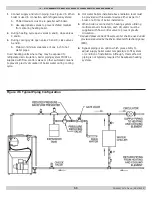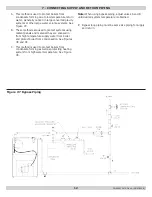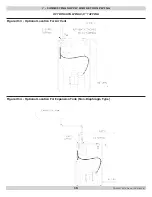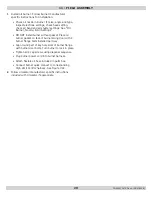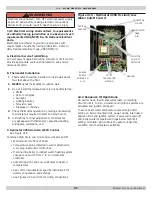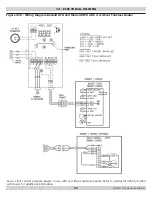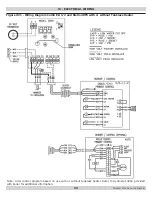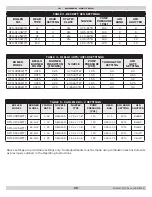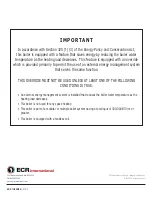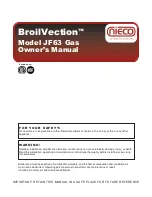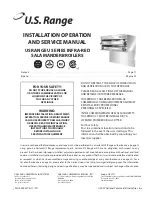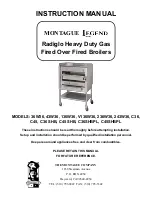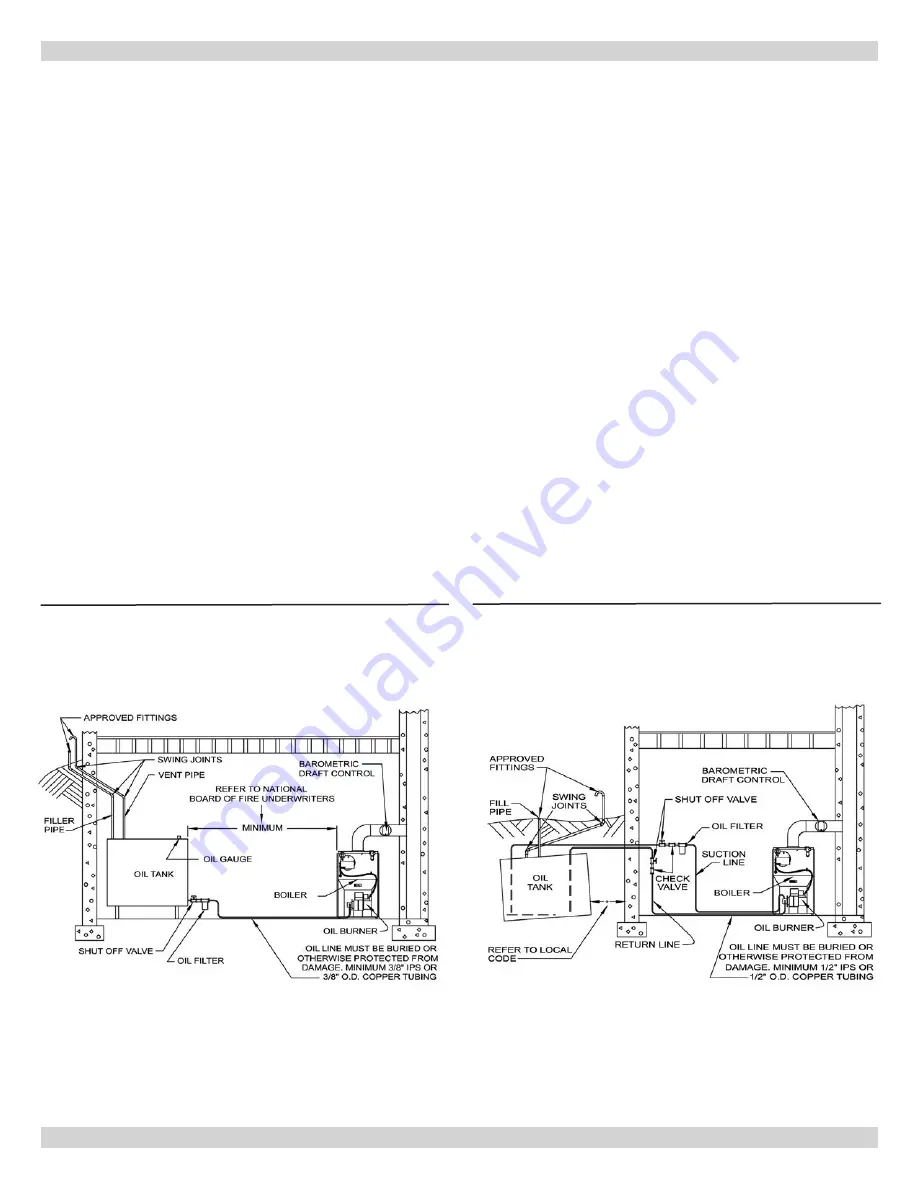
19
1.
Installation of oil tank and piping shall conform to
requirements of authority having jurisdiction or in
absence of such requirements to
NFPA 31 - Standard
for the Installation of Oil-Burning Equipment.
2.
Installation of oil storage tank, vent, fill pipe and caps
shall conform to requirements of authority having
jurisdiction�
• In no case should vent pipe be smaller than 1¼” I�P�S�
• Fill pipe should not be less than 2” I�P�S�
• Suction line from tank to burner should be one
continuous piece of tubing to prevent air entering line
•
Suction line, must be ⅜” O.D. copper tubing for runs of
50 feet or less, and ½” O�D� for longer runs�
• Use oil return line, same size as the suction line, on
installations where bottom of tank is below fuel unit of
burner�
• Bury oil lines or protect from mechanical injury�
•
Flare fittings on all oil lines are required. Compression
fittings on suction line often allow air to be drawn into
fuel pump, making it difficult to maintain oil pressure at
nozzle�
• Do not run overhead fuel lines from tank to oil burner�
• Follow instructions, attached to fuel pump, for fuel
pump and by-pass connections�
• Install two stage fuel unit if tank is more than 20’
from boiler in place of single stage pump supplied as
standard equipment with burner� Verify rotation and
speed are identical and pump is suitable for burner
horsepower rating�
•
Install oil line filter and shut-off valve in suction line.
•
Install Shut-off valves in both suction and return lines
at burner for convenience in servicing burner�
• Allow extra tubing at burner so burner may be removed
from boiler for cleaning without disconnecting tubing�
See Figures #17 and #18�
•
Use flexible oil lines so burner swing door can be
opened without disconnecting oil supply piping�
10 - OIL TANK AND PIPING
Figure #17 - Typical Installation Single Pipe Oil
System
Figure #18 - Typical Installation Two Pipe Oil
System
PN 240013073, Rev. A [08/31/2020]







